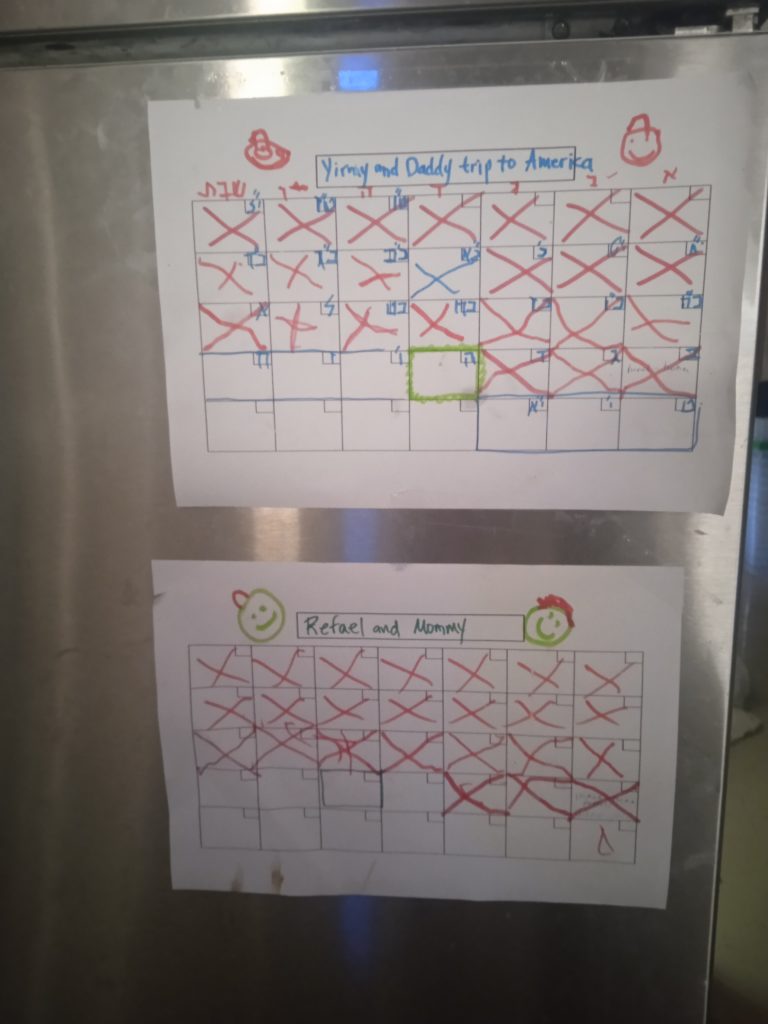Since the twins have arrived almost a week ago, I’ve been musing about perceptions, judgments and the conclusions we come to about people.
Our social worker has checked in a few times to check how things have been going. Honestly, it’s been really good and going much more smoothly than we expected; she’s been surprised at our positive feedback based on what her understanding of the children was.
In the different meetings I had with the social workers and the short term foster mother, I gleaned as many details about the twins as I could. It was a daunting description.
Now that we’re having our own experience with them, my husband and I both are surprised at the many discrepancies between what we were told and what we are seeing in our home. Here’s a list of some things that so far haven’t been accurate to what we were told:
- They’re picky eaters, won’t touch a long list of foods – but – they’ve eaten everything I’ve served at every meal and snack, with no pressure. Several times I’ve served a food they tell me they don’t like, and I tell them that’s fine, they don’t have to eat anything they don’t want to eat. So far, almost every single time within a few minutes they ask for a small serving. And then they keep eating more! (I’ve also told them they can have as much or as little as they want.)
- They’re destructive, you can’t leave anything around them because they’ll destroy it in a moment – they’ve broken and ruined the best quality toys and games, every single one, every water bottle – nothing is safe in their presence. But – while I’ve sometimes had to redirect their use of different items, they haven’t broken anything. They can be quick to get into things and I can see how with less supervision they might use things in a way that you wouldn’t want them to. Since we stay close by and interact with them all day long, that probably has been a big factor in them not getting bored and resorting to breaking things.
- It’s going to be really difficult for them without television and they don’t like to play outdoors – they asked where our tv was when they saw the picture of our living room, one time when they got here and once since then. But – since arriving, they’ve filled their days productively, much of the time playing outside.
- I asked if they liked books – I got a snort and was warned they’ll rip them all to pieces and again, about the need for tv. But – I read to them before bed every night and they love it; they ask appropriate questions and sit quietly while listening. At their request, I read the book once sitting on one’s bed, then read it another time sitting on the other’s bed.
- We were warned dfs5 is terrified of dogs and he’ll freak out when he gets to our home and sees our dog. But – within an hour of arriving he was stroking our dog. By the next day he was kissing and hugging him. He is constantly looking for our dog, stroking him, telling him how much he loves him – it’s a good thing our dog is very tolerant because it’s a bit suffocating. It’s clearly very therapeutic for dfs5, though.
- They fight constantly; they were put in separate bedrooms in their first foster home because they bothered each other so much they wouldn’t go to sleep. They were seated at different tables not facing one another when they ate so they wouldn’t see each other and not allowed to talk during meals. The court liason determined that it would be better for them to be separated and put up for adoption individually than fostered by one family. But – our approach isn’t to use separation as the sole tool for children who aren’t interacting well with each other, but to teach them to interact with each other respectfully. We try to give each of them a lot of attention so that they don’t perceive the other as competition for what they want to have. While they sometimes get upset at one another (usually because one takes the item the other wants), overall they’re getting along well.
- One of them is ‘obsessed with food’. Recognizing the need to be reassured of food security, I plan three meals and three snacks for each day and I let them know what we’ll have and what time we’ll be having it. If I were staying somewhere, I’d appreciate knowing what was planned for meals, wouldn’t you? I don’t consider asking about what will be served, when, as obsessive.
- One has an ‘obsessive need for closeness and touch’. We give a lot of hugs and physical touch throughout the day before they ask for it. I believe this preempts what may have been constant requests for what wasn’t offered and was infrequently given (I know they each got a hug before bed, I don’t know about during the day). I don’t interpret it as obsessive for a five year old to want to sit on your lap or snuggle next to you when you read a bedtime story.
- One has an extremely low IQ (borderline mental retardation). I wasn’t overly concerned about that when told about it, knowing about neuroplasticity and how the brain grows with use. I was confident we would be able to bring this up substantially, but after meeting and living with the children, I am questioning the diagnosis. There’s unquestionably compromised emotional development, and a lack of thinking ability, but I believe the intellectual deficits are emotionally based.If a person doesn’t feel safe, the brain isn’t going to be online.
Each of the times the social worker called to check in, she asked me about a specific behaviour that is of particular concern to the officials. I told her I haven’t seen it even once since they’ve been here and asked how often it usually occurs. She didn’t know. They had made it sound like it was constant when they talked to me about it. I suggested since they said it’s a stress related behaviour, maybe he’s not displaying it because he has a lot of ways here to self-soothe and release stress?
I was given a description of two very difficult children that no one was willing to take on. The way they were described now seems to both my husband and me as harsh and inaccurate. We think they’re both sweet children.
To be fair to those who described them, they detailed how they acted where they were and maybe if they went to a family who parented differently than us, the descriptions would still be accurate. However, I ask myself, what was the worldview and expectation of children of the person who described them?
Avivah

